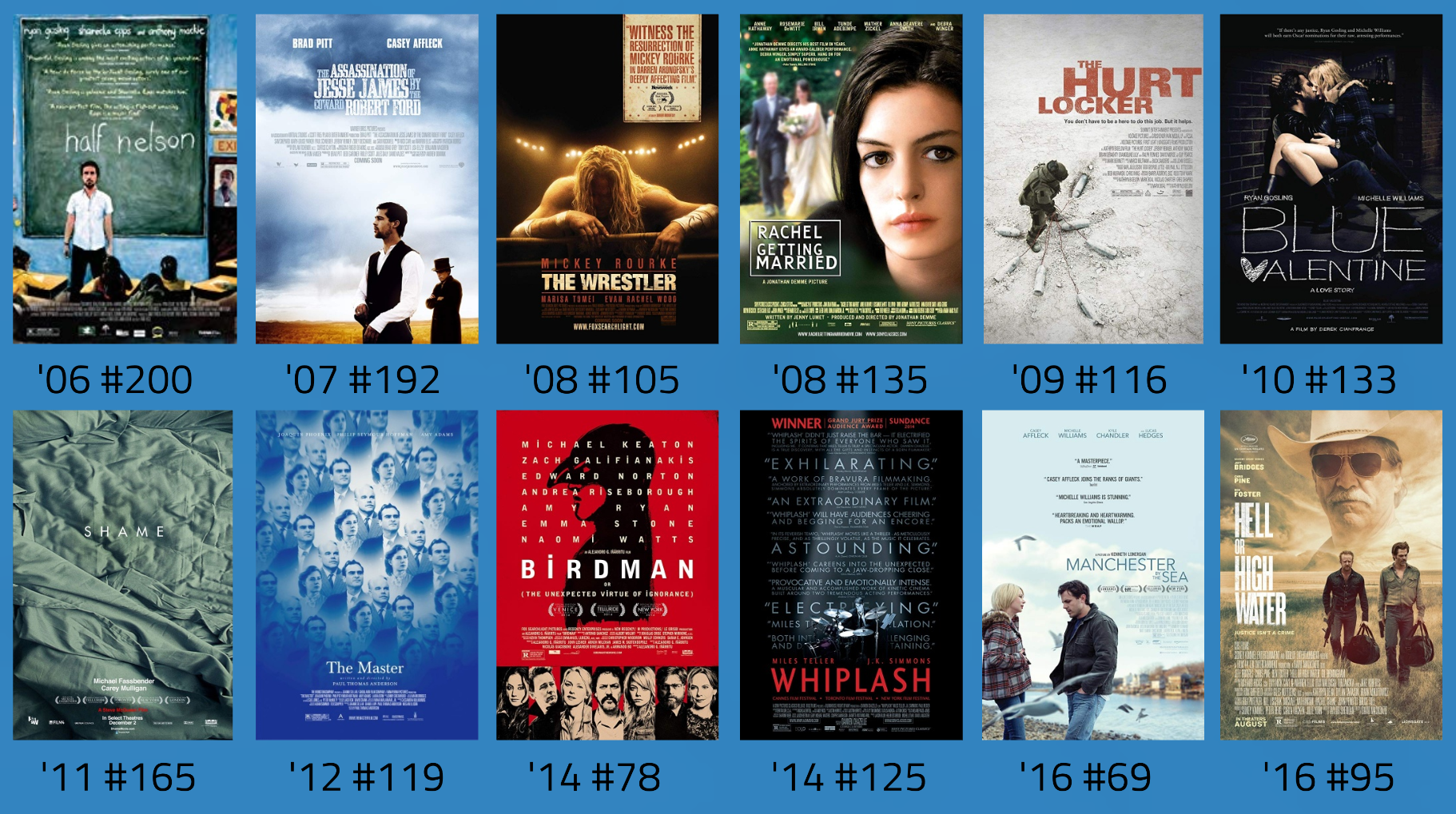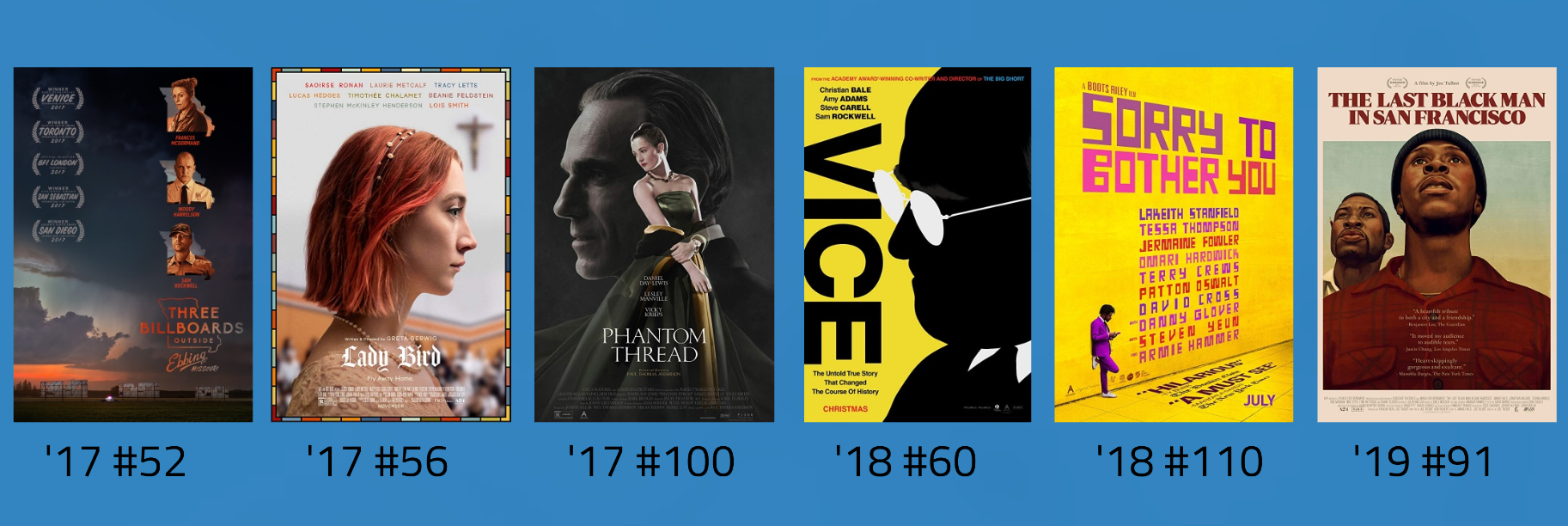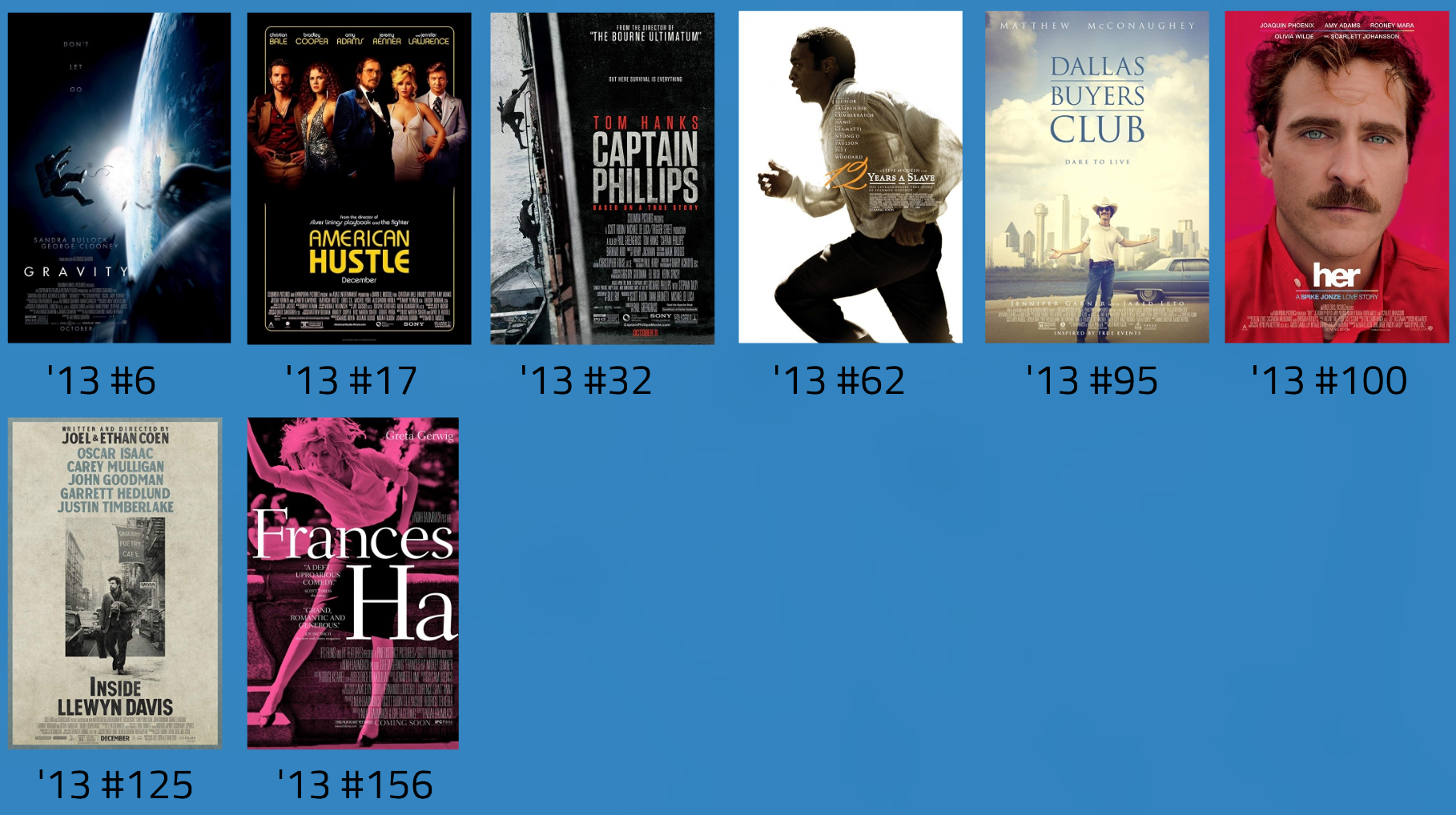Prior to the 1980s, Hollywood, and one might argue that the publishing and music industry as well, provided a fairly competitive balance as far as how much time, effort, and energy was put into thought-provoking work. Does this mean that this type of artwork is no longer produced?
No. Of course not. Art is still very much alive, but I'd argue that it doesn't captivate the masses like it once did. I allege that Art, and a reverence for quality performances, doesn't exist within our collective consciousness like it once did. Take for instance 2018's box-office results.

I'm aware that this is certainly subjective, but I believe it's clear what Hollywood's priorities are today. Poring over these box office results brings a strange confusion over me.
The industry seems married to a boom or bust mentality- an obsession to spend big (on production) in hopes to win big at the box office. They obviously want to turn a $250 million investment into a $1 billion return (something akin to Guardians of the Galaxy) as opposed to a $30 million investment into a $200 million return (similar to what Three Billboards Outside Ebbing, Missouri did).
Here are some contemporary films that were critically well-received and may still hold value decades from now, but didn't commercially fare near as well as their counterparts did sixty years ago.


For the sake of fairness, I wanted to point to one contemporary outlier- 2013. This was easily the strongest year for non-SFX, "hard/realistic" filmmaking in the 21st century.

With the exception of the few scenes that Gravity heavily relied on sfx, even with these strong titles, as a whole, they didn't truly compete with any type of animated or CGI feature.
All of that is to say, even on the strongest year, it's not a competition.
And I get it.
We are all pulled in so many different directions and our attention is tirelessly competed for. We're distracted. And when we do actually put our phones down and go to a movie, it's so that we can transport ourselves to a universe where superheroes wear capes, mythical beings run wild, wizards cast spells, supernatural occurrences happen with great frequency, and we're never compelled to view life from a different perspective or ask ourselves anything challenging.
I think this is important to note: The media we consume in our largest quantities are no longer compelling us to ask tough questions. Instead, it's ensuring that we remain up-to-date and fluent in meme culture.
With every breath of contemporary American existence being as politicized and polarized as it is, people often ask me, “Do you believe this?"
"This" being whatever current event or an incendiary reaction to a current event.
My response is a consistent neutral lack of disbelief.
Every one of our blockbusters have a vapid premise, superficial production, and melodramatic themes that usually pit an individual (or a select few) against massive and evil forces. And now, depending on whatever direction any newsworthy event breaks, the populace clumsily and melodramatically mimics these cheap cultural figures and seem to take comfort in likening themselves to whatever franchise Hollywood Hero they believe best represents them.
Americans from every background are exhibiting signs of desperation, collectivism, and tribalism. Elation when one ideology wins; apocalypse after defeat. With each passing year, the ever-increasing societal, political, and cultural divide grows larger.
To answer that all too common question: Yes. I can believe it.
I watch our movies; consume our media. The writing is all over our screens.
Luckily, when I was a kid, I got my hands on a copy of Roger Ebert's The Great Movies and received some exceptional words of encouragement:
"And now the name Godard inspires a blank face from most film-goers. Subtitled films are out. Art films are out. Now it is all about the mass audience: It must be congratulated for its narrow tastes and catered to. Some few in every generation, however, tire of the mob's taste and go poking in the corners, and for them Godard is waiting-- implacable, oblique, tantalizing."
I'm telling you, it's worth it. Godard is worth it. Art is worth it.